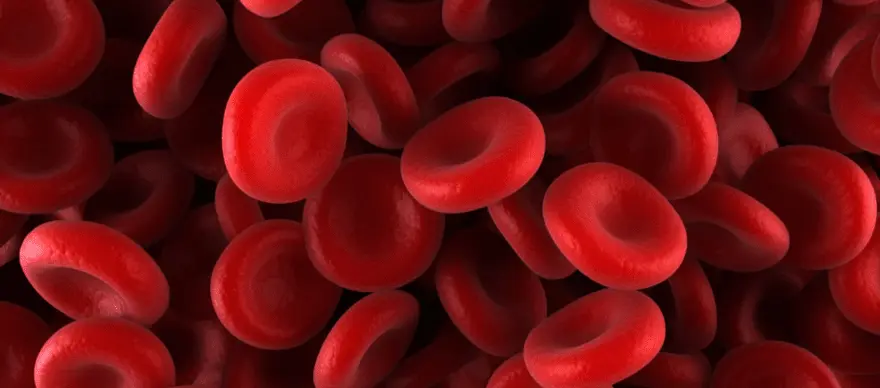Disease
All You Need to Know About Myelodysplastic Syndrome
4646 Views
0

What is Myelodysplastic Syndrome?
Myelodysplastic Syndrome, or MDS, is a serious and rare blood disorder. It is a type of cancer that affects the bone marrow and can cause a decrease or loss in the number of white blood cells. MDS is most often diagnosed in adults aged 25 to 50 but can also occur in younger adults and children. Some common treatments for MDS are chemotherapy and stem cell transplants. Alternative treatments for MDS are immunotherapy and bone marrow transplantation.
Myelodysplastic Syndrome (MDS) Panel by FISH Test
This FISH panel is made to identify the most prevalent and prognostically-important abnormalities in MDS. FISH studies are helpful supplements to complete chromosome studies, especially when monitoring an abnormal clone, determining relapse and progression, or when there is insufficient material for chromosomal analysis.
Get your FISH test Done if you Experience Any Symptoms Like
- Fatigue
- Shortness of breath
- Easy bruising
- Frequent infections
- Thrombocytopenia
- Unusual paleness
- Anaemia
- Easy bleeding
- Pinpoint-sized red spots just beneath the skin
Treatments for MDS
The main goals of myelodysplastic syndrome treatment are to decrease the condition's progression, relieve symptoms, and avoid consequences. Myelodysplastic syndrome has no known cure, but some drugs may reduce the disease's progression.
You might not need therapy right away if you are symptom-free. Instead, your doctor may advise routine checkups and lab testing to monitor your health and determine whether the disease is advancing.
Here are Some Common Treatments for MDS:
1. Blood Transfusion
Red blood cells and platelets in MDS patients can be replaced with healthy blood cells by blood transfusion. It can help manage symptoms.
2. Stem Cell Transplantation
Depending on the source of the replacement blood stem cells, there are two forms of stem cell transplantation: allogeneic (ALLO) and autologous (AUTO). While AUTO uses the patient's stem cells, ALLO uses donated stem cells. In all cases, the objective is to use substantial doses of chemotherapy and radiation therapy to eradicate all unhealthy cells from the bone marrow, blood, and other regions of the body before allowing new blood stem cells to regenerate healthy bone marrow. For MDS patients, an ALLO transplant is advised frequently.
3. Medications
Below are some types of drugs that can be used for the treatment of MDS:
- Drug with growth factors- These drugs are synthetic versions of elements that occur naturally in your bone marrow. Growth agents encouraging the bone marrow to produce more red blood cells may decrease your requirement for regular blood transfusions. Your risk of infection may be reduced by growth agents that encourage the formation of white blood cells.
- Medications to activate blood cell maturation- People not aided by drugs with growth factors and drugs encouraging blood cells to mature can lessen the need for frequent blood transfusions. Some of these medications may help alleviate the possibility of the illness developing into leukaemia.
- Drugs that resist the immunological system- Medications that suppress or regulate the immune system are used to lessen the need for red blood cell transfusions in some MDS patients.
- Medication for genetic anomaly- Your doctor may advise lenalidomide if the gene mutation isolated del(5q) is linked to your myelodysplastic syndrome (Revlimid).
- Drugs that eliminate infections- You will receive medications to manage infections if your condition worsens.
- Common drugs for the treatment of MDS: Hypomethylating drugs [Azacitidine (Vidaza), Decitabine (Dacogen)], Conventional drugs [Cytarabine (Cytosar-U), Daunorubicin (Cerubidine), Idarubicin (Idamycin)], Immunomodulatory drugs (IMiD) [Lenalidomide (Revlimid)].
Alternative Treatments for MDS
1. Immunotherapy
Biologic therapy, also known as immunotherapy, is intended to strengthen the body's inherent defences against MDS. It uses substances that can be produced by the body or in a lab to enhance, target, or restore immune system function. Although therapy is rarely used for MDS, some individuals may benefit from it. Antithymocyte globulin (ATGAM, Thymoglobulin), a kind of immunotherapy for MDS, is administered following chemotherapy. However, immunotherapy can cause complications in some cases.
2. Bone Marrow Transplantation
The only treatment available today that can induce long-lasting remission is high-dose chemotherapy combined with a bone marrow/stem cell transplant. However, because transplantation carries a higher risk of side effects, it may not be suggested for older people or people with existing health issues. A transplant, however, might be an option for people between 50 and 75 after less intense therapy. Your doctor will discuss the risks of transplantation with you before recommending it. They will also consider your age and general health, the subtype of MDS, the outcomes of any prior treatments, and many other things.
In a bone marrow transplant, unhealthy cell-containing bone marrow is replaced with highly specialised cells, known as hematopoietic stem cells, which lead to the development of healthy bone marrow. Blood-forming cells called hematopoietic stem cells can be present in the bone marrow and circulation. Since blood stem cells are often transplanted instead of actual bone marrow tissue, the technique is now more frequently referred to as a stem cell transplant than a bone marrow transplant.
Conclusion
Myelodysplastic syndrome (MDS) is a rare condition that leads to mild to moderate illness, often resulting in long-term health problems. It is a condition that results when the mycelium cells of the spinal cord and brain are destroyed. It can result from ischemic or chronic damage to the body, such as a stroke, tumour, or a combination of both.













1701259759.webp)









 WhatsApp
WhatsApp